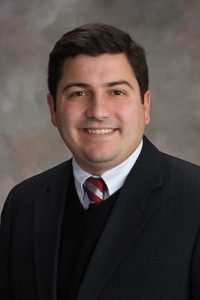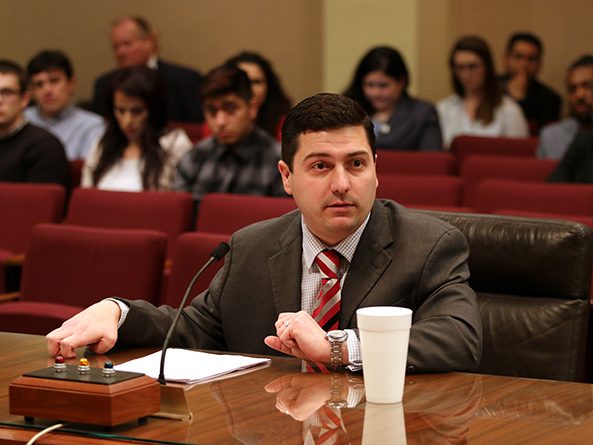Bill would exclude noncitizen population from redistricting process
A portion of Nebraska’s redistricting process would exclude the state’s noncitizen population under a bill considered by the Government, Military and Veterans Affairs Committee Feb. 27.

The Legislature is responsible for drawing new governmental boundaries every 10 years after the decennial census for districts pertaining to the U.S. House of Representatives, Legislature, Nebraska Supreme Court, Public Service Commission, University of Nebraska Board of Regents and the state Board of Education.
Redistricting will be undertaken next in 2021.
LB1115, sponsored by Gretna Sen. John Murante, would require that the boundaries for legislative districts, state Supreme Court districts and political subdivisions be determined by Nebraska’s total population as determined by the U.S. Bureau of the Census, less the noncitizen population of the state.
District lines for members of the U.S. House of Representatives would not be subject to the bill’s provisions.
Murante said the change would put into force a provision of the Nebraska Constitution, which requires that apportionment be based on the population “excluding aliens.” He said that the term “alien” was understood to refer to noncitizens when the current version of the state constitution was drafted in 1920.
The state excluded noncitizens until the U.S. Census Bureau stopped asking the citizenship question in the 1960s, he said, and has not adhered to it since. The bureau produces a noncitizen population estimate that the state should be using to adhere to the constitutional requirement, he said.
“I believe that we cannot simply take a provision of our constitution and ignore it,” Murante said.
Scott Lautenbaugh testified in support of the bill, saying it simply would require the state to do what the constitution requires it to do.
“The court cases are clear that states are given the discretion to determine the populations they consider [for apportionment purposes],” he said.
Gavin Geis, representing Common Cause Nebraska, spoke in opposition to the bill. He said that several former U.S. Census Bureau directors submitted a brief in a recent U.S. Supreme Court case indicating that the noncitizen population estimate data is problematic.
The brief stated that the data is not gathered at the same time as other census data, he said, and instead is gathered on a rolling basis every three to five years. Geis said that as a result, the brief indicated that the noncitizen estimate data could be as much as 80 percent out of date at the time that official census data is gathered.
“That is something I think we should take into account when we’re looking at using that data to draw our own maps in this regard,” Geis said.
Gabriela Pedroza of the Heartland Workers Center also opposed the bill, saying it would exclude large populations of people from representation in state government, including permanent residents, individuals with work permits and others who do not have permanent status.
She said that in 2010, the result would have been the exclusion of approximately 12,800 people in Lancaster County, or 4 percent of the population, as well as 6.4 percent of Douglas County and almost 20 percent of Colfax County, which has a large immigrant population.
“Just because they cannot vote does not mean that people should be excluded from representation,” Pedroza said.
Nate Dobbs of Nebraska Appleseed agreed. Testifying in opposition, he said a significant number of hardworking, taxpaying Nebraskans would lack representation in a redistricting process based on the provisions of LB1115.
The undocumented population in Nebraska—currently about 85,000 people—contributes approximately $40 million in state and local taxes per year, he said.
“Without representation, that creates a situation where there is some taxation without representation at the state level,” Dobbs said.
The committee took no immediate action on the bill.


